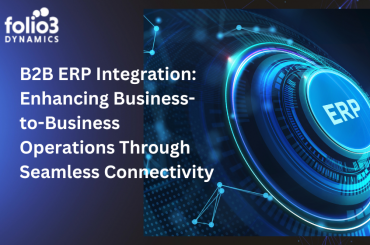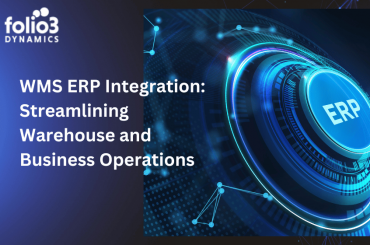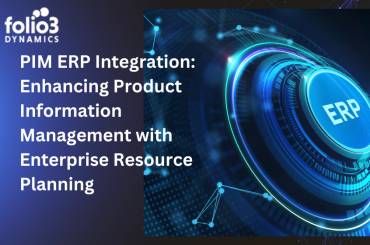In the ever-evolving landscape of business technology, staying ahead means embracing tools that streamline operations and foster growth. Enterprise Resource Planning (ERP) tools have emerged as the linchpin in this arena, offering an integrated approach to managing a company’s core business processes. But what are ERP tools, and how can they catalyze your business’s success? This comprehensive guide will voyage through the role of ERP tools in modern business, key features, strategic implementation practices, and real-world success stories.
Introduction to ERP Tools
Definition and Explanation of ERP Tools
ERP tools are software systems that integrate and manage all the essentials of a business – from inventory and order management to accounting, human resources, customer relations, and beyond. In an age where information is power, ERP systems consolidate data to provide valuable insights, streamline workflow, and drive data-driven strategic decision-making.
Importance of ERP Tools for Businesses
For business owners and managers, ERP tools are more than just a software solution; they are a vehicle for transformation. These tools offer scalability, efficiency, and clarity, ensuring decision-makers have the information they need to make informed choices and foresee industry trends.
Understanding ERP Tools
What Are ERP Tools?
ERP tools are the central hub for all transactional information within a company. They ensure that each department, from sales to supply chain, operates cohesively rather than in silos. The interconnectedness provided by ERP systems enhances productivity and upgrades the quality of analysis and reporting capabilities.
Key Functionalities and Benefits of ERP Tools
The virtues of ERP systems include improved resource management, reduced operational costs, enhanced communication, and superior compliance and risk management. Such systems also adapt to the changing demands of a business, granting them the agility and resilience needed to thrive in today’s competitive market.
Overview of Best ERP Tools
Criteria for Defining the Best ERP Tools
Identifying the best ERP tools hinges on functionality, user-friendliness, customization capabilities, cost, and scalability. The ideal ERP solution should align with your business’s needs both now and in the foreseeable future.
Highlights of Top-rated ERP Tools in the Market
While there are many ERP tools out there, Microsoft Dynamics 365, Oracle NetSuite, and SAP Business One lead the pack. Each provides robust capabilities tailored for the modern enterprise, delivering best-in-class services ranging from customer engagement to real-time analytics.
Comprehensive List of ERP Tools
Below is a list of some of the most popular ERP tools that businesses of various sizes and industries are leveraging to optimize their operations and enhance decision-making processes:
- SAP Business One – A comprehensive solution designed for small to mid-sized businesses, offering modules for finance, customer relationship management, warehousing, procurement, and more.
- Oracle NetSuite – A highly scalable, cloud-based ERP suited for various business applications, mainly known for its strong financial management capabilities.
- Microsoft Dynamics 365 – Integrating CRM and ERP capabilities, Dynamics 365 facilitates a wide spectrum of business processes within a single, unified platform.
- Infor – Offering industry-specific solutions, Infor ERP is renowned for its flexibility and modern user interface, catering to manufacturing, healthcare, and retail segments.
- Odoo – An open-source ERP with a modular structure, allowing businesses to start with a subset of tools and add more as they grow.
- Epicor – Providing cloud and on-premise solutions, Epicor ERP is tailored for manufacturing, distribution, retail, and services industries.
- IFS – Focused on offering agile enterprise asset management, service management, and resource planning tools.
- SYSPRO – Specializing in addressing the needs of manufacturers and distributors with a particular focus on simplicity and automation.
- Acumatica – A cloud-based ERP solution offering a flexible pricing model and a wide range of functionalities for a diverse set of industries.
- Sage 300cloud – Previously known as Sage ERP Accpac, this solution offers comprehensive financial and operational management features for small and medium businesses.
- Deltek – Designed for project-based businesses such as government contractors, professional services firms, and marketing agencies.
- Workday Financial Management – Combining financials with HR and planning in a single system, Workday is known for its user-friendly interface and advanced reporting capabilities.
- Plex Systems – A cloud ERP solution tailored specifically for the manufacturing industry, providing a unified management platform for operations and supply chain management.
- Rootstock – A cloud-based ERP solution built on Salesforce that specializes in manufacturing, distribution, and supply chain management.
- Unit4 – Offering ERP solutions for various industries, Unit4 stands out with its user-friendly interface and advanced AI capabilities.
- Ramco ERP – A cloud-based solution offering a wide range of industry-specific features, including aviation, logistics, and HR management.
- SAP S/4HANA – The next-generation ERP suite from SAP, providing real-time data insights and advanced AI capabilities for businesses of all sizes.
- MIP Fund Accounting – Explicitly tailored for non-profit organizations, MIP Fund Accounting offers robust financial management and fundraising functionalities.
- FinancialForce ERP – Built on the Salesforce platform, FinancialForce provides a complete end-to-end solution for finance, billing, and accounting processes.
- Syspro Espresso – A mobile ERP solution that allows businesses to access real-time data and complete transactions from any location. Overall, numerous ERP tools are available in the market, each with unique strengths and functionalities. It’s essential for businesses to thoroughly evaluate their specific needs before choosing an ERP solution that aligns with their goals and objectives.
ERP tools have become essential for businesses looking to stay competitive in today’s fast-paced market. These solutions automate and streamline processes and provide valuable insights for informed decision-making. With a comprehensive list of top ERP
Detailed Enumeration of Various ERP Tools Available
Beyond the leaders mentioned, the market brims with ERP solutions engineered for various business sizes and industries. From specialized tools that cater to niche sectors to all-encompassing systems for large corporations, the spectrum of ERP tools is broad and diverse.
Categories and Specialties of Different ERP Tools
ERP tools vary greatly; some emphasize financial toolsets, while others prioritize supply chain management or customer relations. Selecting a tool often depends on your business’s primary area of activity and the specific challenges you face.
ERP Tools in Practice: Microsoft Dynamics
Exploration of Microsoft Dynamics as an ERP Tool
Microsoft Dynamics 365 stands out due to its seamless integration with other Microsoft products and services, offering an intuitive user experience and a comprehensive suite of business applications that support a range of business processes. Its flexibility and scalability make it a top choice for small and medium enterprises.
Real-world Examples of Businesses Successfully Using Microsoft Dynamics
Microsoft Dynamics has enabled businesses such as Razer, Pandora, and HP to optimize their operations, scale efficiently, and deliver outstanding customer experiences. These success stories demonstrate the transformative power of ERP tools in action.
ERP Tools Implementation Strategies
Best Practices for Implementing ERP Tools
Deploying an ERP tool requires a well-thought-out plan and strategy that considers budget, training, integration with existing systems, data migration, and change management. A phased approach is often recommended to minimize disruption and ensure smooth adoption.
Common Challenges Faced During ERP Tool Implementation
While the benefits of implementing an ERP tool are undeniable, the process is not without its challenges. Common obstacles include resistance to change, data quality and integration issues, and lack of user training and support.
Features and Advantages of Microsoft ERP Tools
Driven by data and powered by AI, Microsoft Dynamics 365 excels in personalizing customer experiences, optimizing operations, and empowering employees. Its adaptability to any business size makes it a formidable option for both growing businesses and established organizations.
Forecasting the Evolution and Growth of ERP Tools
As technology continues to evolve, so will ERP tools. With advancements such as machine learning, predictive analytics, and cloud-based solutions, the future of ERP systems looks promising. As businesses increasingly rely on data for decision-making, ERP tools will only become more critical for
Examples and Case Studies
Real-world Examples of ERP Tools Deployment
Translating the potential of ERP tools to tangible outcomes demands a look into real success stories. Businesses worldwide have harnessed the power of ERP solutions to revitalize processes, boost productivity, and inspire innovation, demonstrating the transformative effect of ERP tools.
Case Studies on the Impact of ERP Tools on Business Operations
Case studies from a variety of industries reveal how ERP implementations have streamlined workflows, cut costs, and expanded opportunities. Success stories highlight how enterprises navigated the implementation process and the impressive results achieved.
How to Maximize the Benefits of ERP Tools
Tips and Strategies for Successful Implementation and Adoption
Implementing an ERP solution is a journey that requires careful planning, thoughtful integration, and adequate training. Organizations can maximize the benefits by setting clear goals, involving stakeholders from all levels, and focusing on change management.
ERP Tools and Software Integration
Discussion on How ERP Tools Integrate with Other Business Software
A significant strength of ERP tools is their capacity to mesh with other software systems, creating a cohesive technological ecosystem. Proper integration maximizes the value of existing tools and expands the overall functionality of the ERP system.
Challenges and Solutions in ERP Software Integration
Despite their inherent benefits, integration processes can be complex, requiring strategic planning and execution. We’ll dive into common integration challenges and examine solutions that ensure a smooth transition and optimize system value.
Strategic Implementation Practices for ERP Tools
Best Practices for Implementing ERP Tools in Businesses
Implementing an ERP system is a significant investment of resources, time, and effort that demands careful planning and execution. We’ll explore the best practices, from conducting thorough research to training employees and managing change.
Key Considerations and Potential Roadblocks During Implementation
Introducing ERP tools into a business involves considerable adjustments and may encounter challenges such as resistance to change, data migration issues, or inadequate training. We’ll delve into these concerns and provide strategies to overcome potential roadblocks.
ERP tools have become essential to modern businesses, driving efficiency, agility, and growth. With the vast array of options available
Recap of the Significance of ERP Tools in Modern Business Environments
In conclusion, ERP tools are not just a fad but a fundamental component of modern business success. Their role in enhancing efficiency, providing insights, and driving growth cannot be overstated.
Future Trends and Advancements in ERP Tools and Software
As we gaze into the horizon, ERP tools continue to evolve. Emerging trends hint at more sophisticated analytics, increased cloud adoption, and enhanced mobile capabilities, all of which promise to usher in a new era of business optimization.
We hope this expansive journey through ERP tools affirms the value they can bring to your business. Whether you’re a seasoned SME manager or a visionary business owner, the right ERP tool will chart a course toward remarkable operational excellence. Consider Microsoft Dynamics 365, Oracle NetSuite, or SAP Business One as beacons in this exploration – guiding lights toward a future defined by informed decisions, integrated operations, and unbridled success.





